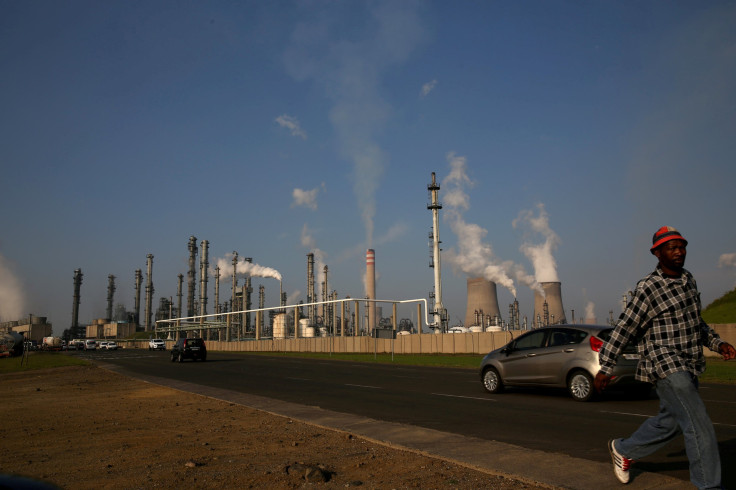White South African Workers Strike Over Blacks-Only Share Scheme
JOHANNESBURG - Workers from South Africa's mainly-white Solidarity union staged a go-slow protest at the petrochemicals firm Sasol on Monday over a share scheme offered exclusively to black staff, and said they would begin a full strike on Thursday.
South African companies are required to meet quotas on black ownership, employment and procurement as part of a drive to reverse decades of exclusion under apartheid. Meeting the rules makes a company more likely to qualify for government tenders.
Solidarity has been waging a challenge against racial quotas in the workplace, and lodged a complaint against the policy in 2016 with the U.N. Human Rights Commission.
Sasol, the world leader in technology that converts coal and gas to fuel, has sold 25 percent of its local operations to qualifying black employees, a foundation and the black public in a 21 billion rand ($1.5 billion) deal financed by the company.
It has said the scheme is not a benefit but a mechanism designed to meet the rules on black economic empowerment, and was backed by shareholders.
But Solidarity said the scheme was discriminatory and that it would file a complaint to U.S. regulators. Sasol also operates in the United States.
The union said 6,300 of its members would hold a go-slow at Sasol's facilities in South Africa, and then strike on Thursday.
"We are not against the scheme, we just want it to be inclusive of all workers. If the company makes it inclusive, the majority will still be black, so we see no need to exclude white workers as this is discrimination," said Dirk Hermann, Solidarity's chief executive.
Sasol, which employs around 26,000 people in South Africa, said it was aware of Solidarity's intent to strike, and that it had made contingency plans.

SHARES SLIP
Sasol's shares were 1.4 percent lower at 568.14 rand, with the market expecting the dispute to be resolved without affecting earnings.
A Sasol spokesman said parts of the flagship Secunda and Sasolberg plants, which produce fuel and chemicals respectively, were anyway undergoing scheduled maintenance shutdowns, but that both plants otherwise continued to operate.
The ruling African National Congress said in a statement that it was concerned by the "obsession with perpetuating racial polarization" triggered by Solidarity's protest.
Solidarity's Hermann said the union was not promoting racism and had backed schemes at AngloGold Ashanti and iron ore mining firm Kumba that treated white and black workers equally.
But it was in court challenging an empowerment scheme at the cement firm PPC that grants each black worker twice as many shares as a white worker.
Herman said Solidarity had also challenged a similar scheme at South Africa's biggest mobile operator, Vodacom, but had been hampered by its low members' roll at the firm.
The Commission for Conciliation, Mediation and Arbitration, which mediates in labor disputes, ruled that Solidarity did not have a legal right to challenge Sasol's scheme in court, but could push its cause through industrial action.
"We expect Sasol to come to the negotiating table," Hermann said.
- Reuters
© Copyright Thomson Reuters 2024. All rights reserved.





















